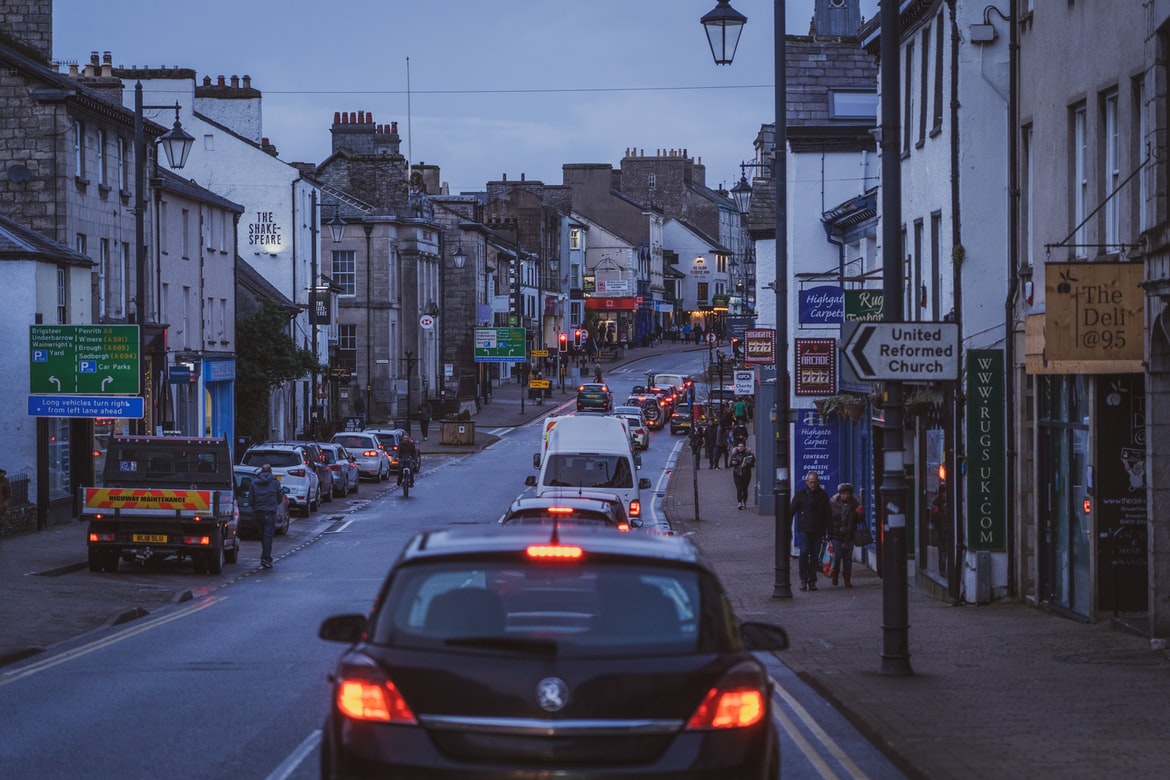Drivers are collectively planning an estimated 21.46m leisure journeys by car this weekend, the highest number for an Easter bank holiday since the RAC first started tracking motorists’ plans in 2014, according to new research published today.*
Good Friday – the first bank holiday since the start of the year – looks set to be the single busiest day of the long weekend with drivers planning in the region of 4.62m separate leisure trips, followed by bank holiday Monday (3.96m) with Saturday and Sunday each seeing around 3.63m journeys by car. An additional estimated 5.6m trips will be taken by drivers at some point between Friday and Monday.
The RAC together with transport analytics specialists INRIX are predicting some extremely busy roads, with the Easter getaway likely to be made worse by the impact of closures to some parts of the railway network. Major engineering work between London and Birmingham is likely to push more people onto the roads, including those making their way from Manchester and Liverpool to Wembley to watch the semi-final of the FA Cup on Saturday. Expected rail strikes in Scotland and the north of England could also make matters worse.
INRIX data suggests that the M6 north between Liverpool and the Lake District, south towards Stoke-on-Trent, the M25 between Surrey and the M40 exit, and the A303 near Stonehenge could see some of the worst congestion, with drivers urged to set off as early as they can or to delay their trips until the end of the day to stand a better chance of a smoother journey. Inevitable breakdowns also risk causing additional long queues, so the RAC is strongly urging drivers to check their vehicles are ‘road-ready’ before setting out.
In addition to the expected traffic jams, drivers also face the costliest Easter on record when it comes to petrol and diesel prices with 6% of drivers saying they’re not planning a car trip at all over the weekend for this very reason. Separate research by the RAC** also suggests that the high pump prices might affect people’s trips in other ways – one-in-five drivers (20%) said they plan on driving a shorter distance this Easter than in previous years, with the same proportion saying they’ll be cutting back on other Easter expenditure because of high petrol and diesel prices. More than a quarter (28%) said they’re planning on using their cars less, while a third (33%) will be deliberately driving more economically to try to keep their Easter fuel spending down.
The research** also found that only a fifth of drivers (19%) say they always check their cars are ‘road-ready’ before making an Easter trip, increasing the potential for breakdowns to ruin the start of many people’s breaks. Half of drivers (51%) said they sometimes checked their cars over before setting out but an alarming 30% said they never do. The RAC is therefore reminding people that spending just a little time checking their vehicles’ oil, coolant and tyres can prevent a very inconvenient breakdown.
RAC traffic spokesperson Rod Dennis said: “After two years of relatively quiet Easter bank holidays on the roads, our research suggests a return to traffic levels that are much more typical of this time of year, and it’s very possible this weekend could turn out to be one of the busiest for leisure journeys for many years. Add in the impact of disruption on the rail network and one of the biggest fixtures of the sporting calendar taking place this weekend and you have all the ingredients needed for problems on the roads. Traffic volumes will likely be even higher if some warm spring sunshine makes an appearance.
“The key to avoiding the worst of any jams is planning. Put simply, the earlier you leave in the morning the more likely you are to miss the worst of the queues, especially if you are travelling a longer distance – although a fifth of drivers we polled said they were planning on driving shorter distances this Easter, specifically because of the extremely high cost of petrol and diesel at the moment.
“As well as leading to queues of traffic, vehicle breakdowns also have the potential to ruin the long weekend for drivers and anyone they’re travelling with, so we’re urging people to make sure they’re vehicles are ‘road-ready’ before setting out. This is even more important for anyone travelling longer distances than they have for several months. A breakdown is much less likely if a car’s oil and coolant levels, as well as tyre pressure and tread depth, have all been checked before setting out.”
Bob Pishue, INRIX Transportation Analyst, said: “Even with a significant increase in petrol prices, we expect a large jump in holiday driving compared to the last few years. Drivers should expect congestion on major roadways around urban areas and popular destinations. Knowing when and where congestion will build can help drivers avoid the stress of sitting in traffic.”
Met Office Deputy Chief Meteorologist, Dan Rudman, said: “It’s bit of a mixed picture as far as weather is concerned over the long Easter weekend although feeling warm in places, at least early in the weekend.
“A low pressure system to the north west of the UK will bring unsettled weather to the north with some strong winds likely and rain in the north west, which could impact driving conditions for some. However, further south it will be drier, especially in the southeast, although there will be varying amounts of cloud and the risk of one or two showers through the day on Friday. Temperature are likely to be above average for the time of year, although low cloud might keep temperatures lower in coastal areas.”
National Highways customer services director Melanie Clarke said: “This is the first bank holiday of the year, so we expect the roads to be busy with people looking to make the most of a long weekend. To help keep disruption to a minimum, we’re lifting more than a thousand of miles of roadworks.
“The last thing anybody wants on the way to their destination is to have a vehicle breakdown. That’s why it’s really important people spend a few minutes checking the condition of their tyres before setting off.”
Top tips from RAC patrols on avoiding a breakdown
“Put simply, a well-maintained car is much less likely to break down than one that hasn’t been looked after. So, if you have a big drive coming up and suspect something on your car’s not quite right then get it into a good garage as soon as you can this week.” – Ben Aldous, Manchester-based patrol
“Keep your locking wheel nut somewhere you can easily find it as this makes it quicker for us to do a tyre change if needed. Make sure that everything fixed to the outside of your car – bikes, roof boxes – are properly secured. If you’re travelling with a dog, again ensure it’s secure inside and has some food and water. And download and use the free MyRAC mobile app as it makes it much easier for us to find you.” – Kevin Andrews, Bath-based patrol
“Check your tyres every time, especially the inside front edges. You can fully lock the steering one way or the other so you can see the condition of your front tyres easily. And whatever you do, don’t start a journey with a known problem!” – Stuart Lurc, Salisbury-based patrol
Top tips for avoiding – or just coping – with the jams
| 1 | Think carefully about when to travel | Most traffic queues are caused by too many cars on the same roads at the same time. If you can travel outside the peak times – think early in the morning or later in the evening – you can easily miss them. |
| 2 | Make sure your vehicle is properly prepared | Many breakdowns are avoidable – punctures for instance can be caused by a tyre that is in poor condition or not inflated properly. Check oil and coolant levels as if these run low you could be in for an unwelcome breakdown and a big repair bill. |
| 3 | Keep you and your passengers happy | Hungry, thirsty or tired passengers are recipes for in-car irritability – and ‘carguments’, so when setting out, pack enough food and water to keep your passengers happy, and plan in enough breaks along the way. |
SOURCE: Read More – Busiest Easter bank holiday on the roads in years predicted with drivers planning more than 21m leisure trips | The RAC Media Centre



